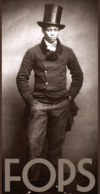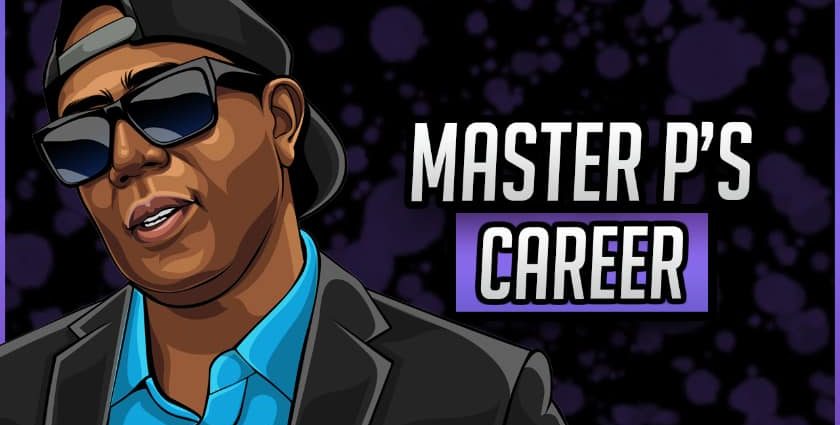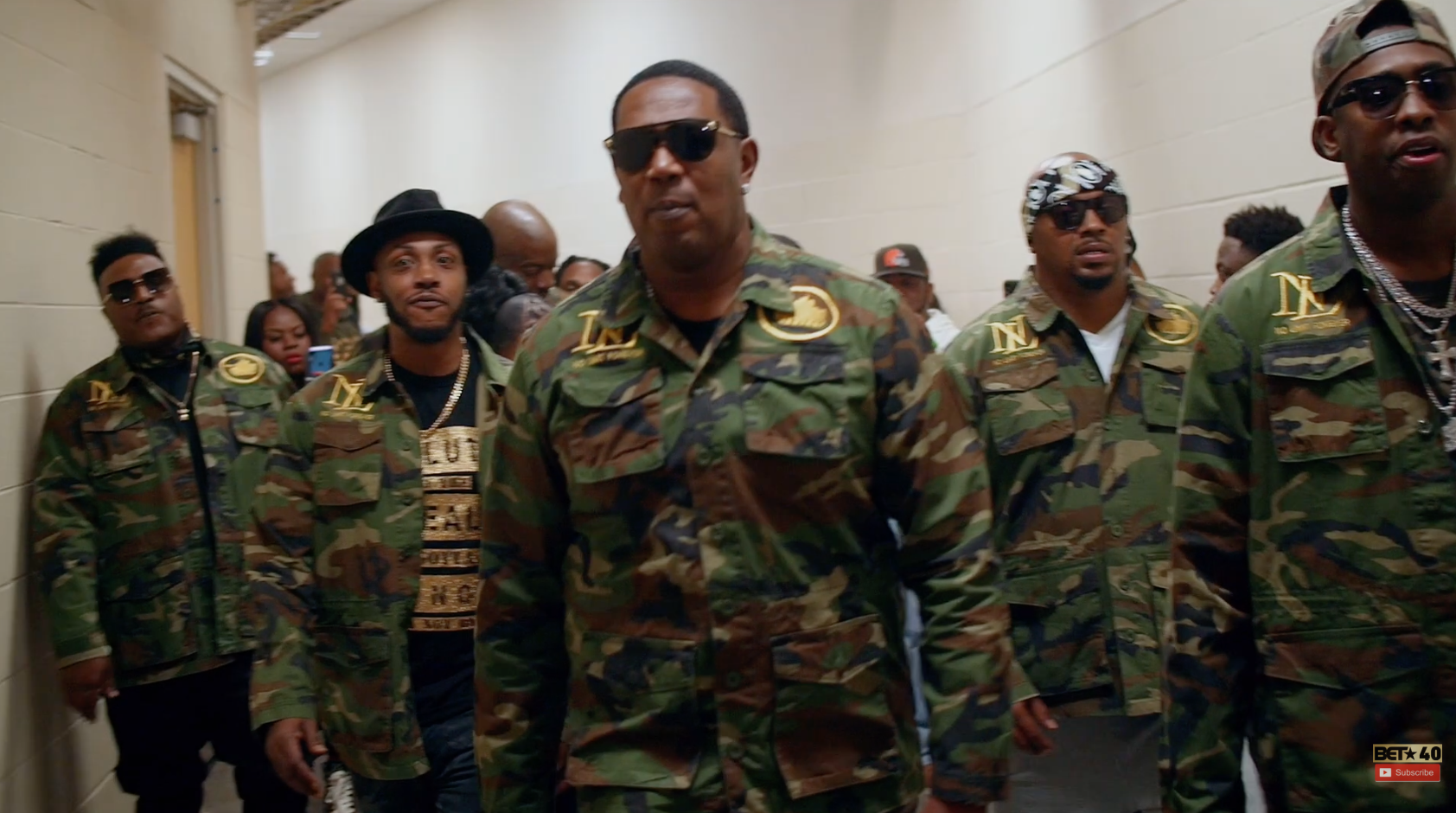Master P Talks ‘No Limit Chronicles,’ Building Generational Wealth in the Black Community (Exclusive)
Master P wants to inspire and encourage economic empowerment.
The music mogul’s rise to the top of the rap game is the focus of the BET docuseries No Limit Chronicles, debuting Wednesday, July 29.
The five-episode series features rare footage and dramatic recreations that follow Master P’s humble beginnings in New Orleans, to becoming a multimillionaire entrepreneur. The series features appearances from former No Limit artists Snoop Dogg, Silkk the Shocker, Mia X, Mystikal, Fiend, and Mr. Serv-On.
“What I want people to take away from the docuseries is that if I made it out the conditions that I made it out of, then you can do it,” Master P told ET.
The record label’s “No Limit Soldier” moniker, and the infamous military tank used as the company logo, pays homage to Master P’s father, grandfather, younger brother, Corey “C-Murder” Miller, and other relatives who served in the military. C-Murder, whose stage name is a nod to his military days, was sentenced to life in prison for murder in 2009. “We’re definitely praying and fighting for him,” P says. “Hopefully, we’ll have some good news. He’s an innocent man. He shouldn’t have been locked up all these years.”
The eldest of five children, Master P — born Percy Miller — was raised in NOLA’s Calliope Projects. In No Limit Chronicles, viewers will see the auspicious and painful sides of his story, like the murder of his brother, Kevin, and the death of his grandfather.
“There’s a lot of loss that I dealt with but I wouldn’t change my past,” he shares. “You definitely reminisce on the people you lost and the things you’ve been through, but I feel like it’s time to let other people see that.”

In 1989, Master P married his childhood sweetheart, Sonya. The couple has since divorced but have seven children together, including their eldest son, Romeo Miller. An aspiring basketball player, P earned a scholarship to the University of Houston but dropped out freshman year. He moved the family to Richmond, California, and attended Merritt College in nearby Oakland. As a new father, P set out to build a financial foundation for his growing family. No Limit Records began as a consignment record store in Richmond in the early ‘90s, before expanding into a record label. P moved back to New Orleans and began expanding the imprint.
In the mid-‘90s, No Limit Records landed a distribution deal with Priority Records. P was the first artist on his label and released the albums Ice Cream Man and Ghetto D in 1996 and 1997, repsectively. But building a family business has always been his vision. Besides himself, the No Limit Records roster featured his younger brothers, Silkk the Shocker and C-Murder.
Today, nearly 30 years after No Limit Records was founded, P continues to work closely with his family, and has brought his children into the fold. “I enjoy working with all my kids, because I feel like all these other cultures [work together]. How come us as African Americans can’t put ourselves in a position where we can work with our family? Pass down a family business, build generational wealth, start with your inner circle, your family.”
By 1997, the albums Tru 2 Da Game by Master P, Silkk the Shocker and C-Murder, Mia X’s gold-selling Unlady Like LP, and Mystikal’s platinum album, Unpredictable, made the music industry take notice of No Limit’s earning power.
Meanwhile, the rap world was reeling from the deaths of Tupac Shakur and Notorious B.I.G. Snoop Dogg, Shakur’s former labelmate and friend, left Death Row Records and signed with No Limit in 1998. The West Coast rap star became a marquee act on No Limit but his label transition caused friction with Death Row co-founder Marion “Suge” Knight.
“I’ve always treated every man the same,” P says when asked about friction with Knight. “You’re going to see that in the documentary, how that situation played out. It’s all about us respecting each other. As Black men, we have to [respect each other] because we all can add something to each other. At that time, Death Row was falling off and No Limit was rising up, so I never looked down on no man. Whatever somebody asked me for, I gave it to him, but I never feared no man either.”
After 100 million records sold independently, No Limit Records solidified itself in rap history. And the No Limit umbrella has expanded into different areas of commerce like P’s MoneYatti sneaker line, Rap Snacks Icon Noodles, Master Clean Life household products, and Uncle P’s Louisiana White Rice.
With companies such as Quaker Oats announcing the removal of Aunt Jemima, Uncle Ben, and other racist product depictions, Master P wants Black business owners to seize the opportunity to finally get their products noticed by major retailers.
“They should have given us the opportunity to put that diversity [back on the shelves] because people like us don’t own packaged goods foods, and that’s where we come in at,” he says. “If I can do it, you know how many others [can] create foods and products that they can sell to the big chain stores like Walmart, Target, Kmart, or Kroger? We have an opportunity to get our products in there.”
“Most of the time we [Black people] are great at making those products but we sell them because we can’t hold onto it,” he continues. “We come up with the idea and lose it. Hopefully, what we’re doing is going to change the game.”

Being in quarantine is a perfect opportunity to launch a business, added P. “When you look at Black Lives Matter and the current state where we are as a culture, us protesting, we sparked so many plugs, but the only way we’re going to make them understand us is through the power of a dollar, and that’s through economic empowerment,” he explains. “Owning our communities, buying back our blocks. Owning these grocery stores, record stores, restaurants, in our community. We’re burning down our blocks but we don’t understand how to buy those blocks. If we’re going to win, we have to buy the blocks back. We have to own our own products.”
He also acknowledged that hip-hop could be more united in helping the Black community.
“I’ve been doing it for 25 years,” he notes. “If you look at when we’re marching, you see all kinds of people coming together. I feel if the hip-hop culture comes together, imagine the people we could feed, we could shelter, the lives we could change. I tell people it’s all about educating us first. We have to educate ourselves. Without education, we’re just entertainers.”
VIA:



